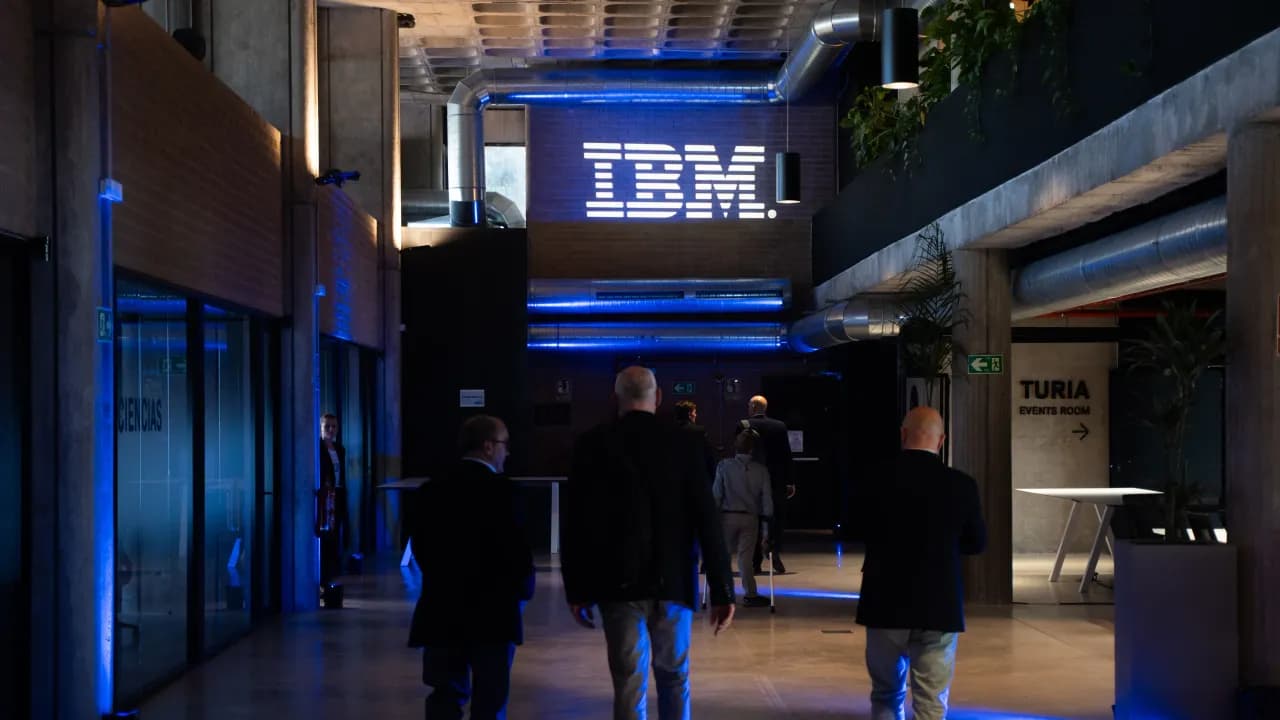The Riken system is powered by IBM’s 156-qubit IBM Quantum Heron, which, according to the U.S. company, is the most performant quantum processor in the world.
IBM, Inc. (IBM) announced late Monday that Japanese national research laboratory Riken unveiled the first “IBM Quantum System Two,” marking its debut overseas.

The IBM Quantum System Two is the first modular utility-scaled quantum computing system unveiled by the company in Dec. 2023.
It integrates classical compute resources necessary to serve IBM Quantum Osprey quantum processors and their future iterations while also using new advanced cooling systems to support physically larger quantum processing units (QPUs).
Retail sentiment toward IBM stock was ‘neutral’ (52/100) on Stocktwits by late Monday, with the message volume spiking to ‘high’ levels.
The stock is up 33% this year.
The technology services giant said the availability marked a milestone as the first quantum computer to be co-located with Riken’s supercomputer Fugaku, considered one of the most powerful classical systems in the world.
The Riken system is powered by IBM’s 156-qubit IBM Quantum Heron, which, according to the U.S. company, is the most performant quantum processor in the world.
Jay Gambetta, VP of IBM Quantum, said, "The new IBM Quantum System Two, powered by our latest Heron processor and connected to Fugaku, will allow scientists and engineers to push the limits of what is possible."
Dr. Mitsuhisa Sato, Division Director of the Quantum-HPC Hybrid Platform Division, RIKEN Center for Computational Science, said, "Our mission is to develop and demonstrate practical quantum-HPC hybrid workflows that can be explored by both the scientific community and industry.”
“The connection of these two systems enables us to take critical steps toward realizing this vision."
The installation of IBM Quantum System Two at Riken expanded previous achievements by RIKEN and IBM researchers as they pursued the discovery of algorithms that offer quantum advantage. Quantum advantage is the point at which a quantum computer can solve a problem faster, cheaper, or more accurately than any known classical method.
IBM is among the pioneers in quantum computing, as it built scalable quantum processors, developed quantum software, furthering a global computing ecosystem. It was the first company to publicly release a quantum computing roadmap and also offer cloud access to quantum systems.
Despite quantum computing's promise, industry experts are divided over its near-to mid-term viability. Artificial intelligence (AI) frontrunner Nvidia’s CEO Jensen Huang, who was once a skeptic about the technology, has now come around.
At Nvidia’s latest “Quantum Day,” held in March, he admitted that he was wrong about the technology's timeline.
Google-parent Alphabet unveiled its Willow quantum chip late last year, while Microsoft was out with its “Majorana 1” chip in February.
Many “smid-cap” players, including D-Wave Quantum (QBTS) and Rigetti (RGTI), are also making waves in the industry.
For updates and corrections, email newsroom[at]stocktwits[dot]com.<
